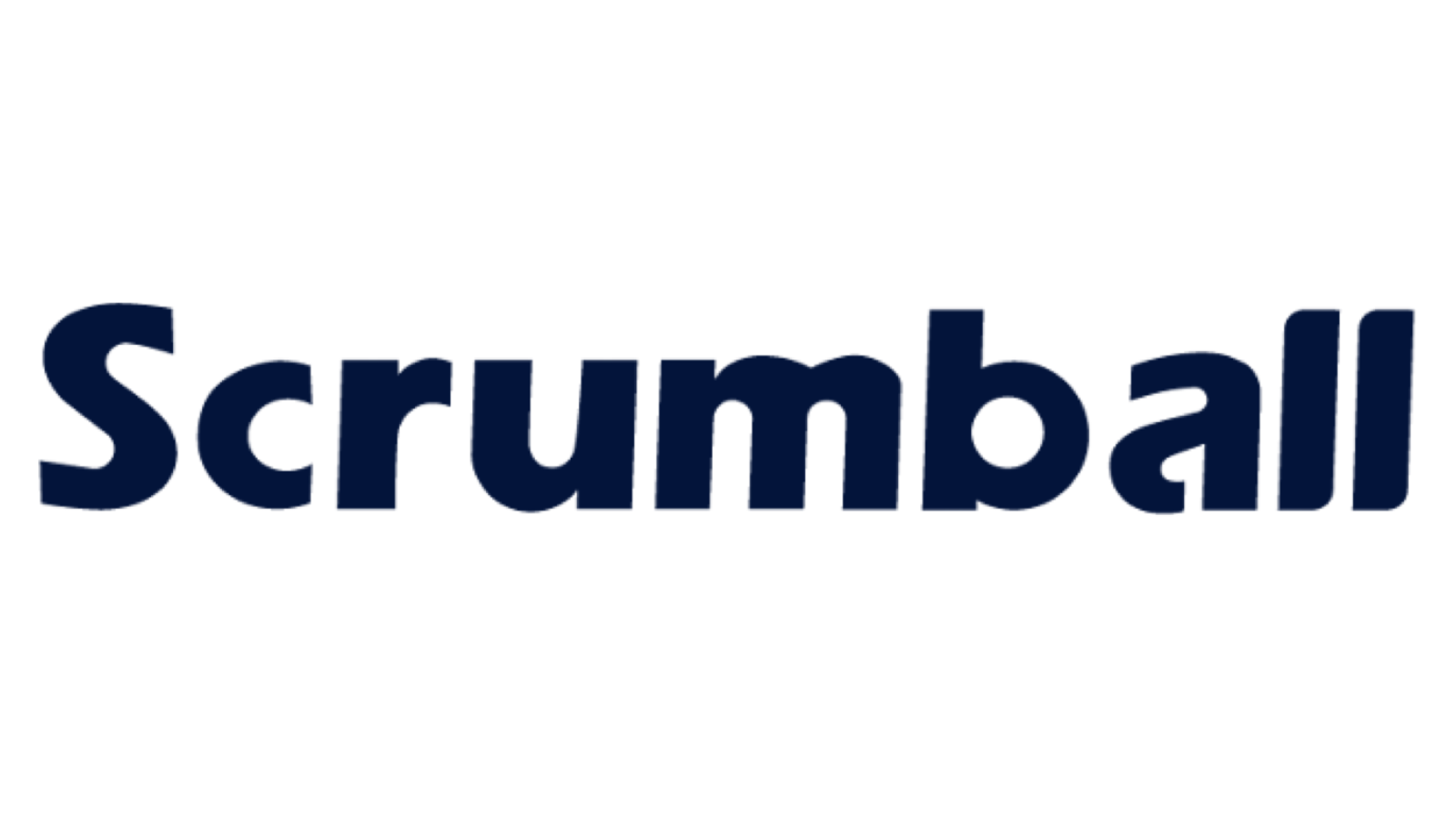Understanding Marketing Automation and Its Purpose

Marketing automation, or what is marketing automation, uses software to handle repetitive tasks in your marketing efforts. It simplifies processes like email campaigns, social media posts, and lead management. By automating these tasks, you can save time and focus on strategic goals. This approach enhances customer engagement by delivering personalized experiences at the right time. Businesses using marketing automation often see significant benefits, such as a 451% increase in qualified leads and improved efficiency. With this tool, you can streamline operations, boost productivity, and drive measurable growth for your business.
What is Marketing Automation?

Definition and Overview
Marketing automation refers to the use of specialized software to handle repetitive marketing tasks. It allows you to streamline processes, saving time and effort while ensuring consistency in your campaigns. By automating tasks like email marketing, social media scheduling, and lead nurturing, you can focus on strategic planning and creative initiatives.
This technology is designed to help you deliver the right message to the right audience at the right time. It ensures that your marketing efforts are both efficient and effective. If you’ve ever wondered what is marketing automation, think of it as a tool that simplifies complex workflows and enhances customer interactions. It’s not just about saving time; it’s about improving the quality of your marketing strategies.
How Marketing Automation Works
The Role of Marketing Automation Software
Marketing automation software acts as the backbone of your automated campaigns. It enables you to set up workflows that trigger specific actions based on customer behavior or predefined rules. For example, when a potential customer signs up for your newsletter, the software can automatically send a welcome email. This eliminates the need for manual intervention and ensures timely communication.
The software also integrates with other tools, such as customer relationship management (CRM) systems, to provide a seamless experience. It collects and analyzes data, helping you understand your audience better. With these insights, you can create personalized campaigns that resonate with your customers.
Examples of Automated Marketing Tasks
Marketing automation covers a wide range of tasks that would otherwise require significant time and effort. Here are some examples:
- Email Campaigns: Automatically send emails based on user actions, such as abandoned cart reminders or post-purchase follow-ups.
- Social Media Management: Schedule posts in advance and track engagement metrics without manual updates.
- Lead Scoring: Assign scores to leads based on their behavior, helping you prioritize high-potential prospects.
- Customer Segmentation: Group your audience into segments based on demographics, interests, or purchase history for targeted campaigns.
- Analytics and Reporting: Generate detailed reports on campaign performance, enabling you to make data-driven decisions.
By automating these tasks, you can ensure consistency and accuracy in your marketing efforts. This approach not only saves time but also enhances the overall customer experience.
Key Features and Functionalities of Marketing Automation
Common Features of Marketing Automation Software
Marketing automation software provides a range of features that simplify your marketing efforts. These tools help you manage campaigns, nurture leads, and analyze performance with ease. Below are some of the most common functionalities:
Email Marketing Automation
Email marketing automation allows you to send personalized messages to your audience at the right time. You can create workflows that trigger emails based on user actions, such as signing up for a newsletter or abandoning a shopping cart. Tools like Mailchimp excel in this area, offering automated email flows and content management features. This functionality ensures consistent communication with your audience while saving you time.
Lead Scoring and Nurturing
Lead scoring helps you prioritize potential customers by assigning scores based on their behavior. For example, visiting your pricing page or downloading a resource might indicate higher interest. Once scored, you can nurture these leads with targeted campaigns. Platforms like HubSpot and Marketo specialize in lead scoring and nurturing, enabling you to guide prospects through the buying journey effectively.
Customer Segmentation
Customer segmentation divides your audience into smaller groups based on shared characteristics, such as demographics, purchase history, or interests. This feature allows you to create highly targeted campaigns that resonate with specific segments. By using tools like HubSpot, you can ensure your messaging aligns with each group’s preferences, improving engagement and conversion rates.
Analytics and Reporting
Analytics and reporting features provide insights into your campaign performance. You can track metrics like open rates, click-through rates, and conversions. These insights help you make data-driven decisions to optimize your strategies. Advanced tools also offer real-time data analysis, enabling you to adjust campaigns on the fly for better results.
Emerging Trends in Marketing Automation
The field of marketing automation continues to evolve, introducing innovative trends that enhance its capabilities. Staying updated on these trends can help you maintain a competitive edge.
AI and Machine Learning
Artificial intelligence (AI) and machine learning are transforming marketing automation. These technologies analyze vast amounts of data to predict customer behavior and recommend actions. For instance, AI can suggest the best time to send emails or identify high-value leads. Many platforms, including HubSpot and Marketo, are integrating AI to improve personalization and campaign efficiency.
Personalization at Scale
Personalization has become a cornerstone of effective marketing. Marketing automation now enables you to deliver personalized experiences to large audiences. By leveraging customer data, you can tailor messages, product recommendations, and offers to individual preferences. This level of personalization fosters stronger connections with your audience and drives higher engagement.
"Marketing automation offers unprecedented personalization for both your marketing communication and your website content," as highlighted by industry experts. This trend ensures that your brand remains relevant and customer-focused.
Benefits of Marketing Automation for Businesses

Increased Efficiency and Productivity
Marketing automation simplifies your workflows by automating repetitive tasks. This allows you to focus on strategic planning and creative efforts. For instance, instead of manually sending emails or scheduling social media posts, automation tools handle these tasks seamlessly. Businesses using marketing automation report a 14.5% increase in sales productivity. This boost in efficiency means you can accomplish more in less time, ensuring your marketing campaigns run smoothly and effectively.
Automation also reduces the chances of human error. Tasks like lead scoring, customer segmentation, and analytics are performed with precision. By streamlining these processes, you can allocate resources more effectively and ensure your team works on high-priority projects. The result is a more productive and goal-oriented marketing approach.
Enhanced Customer Engagement and Retention
Marketing automation enables you to deliver personalized experiences that resonate with your audience. By analyzing customer behavior, automation tools help you send the right message at the right time. For example, automated email campaigns can nurture leads with tailored content, increasing their likelihood of conversion. Research shows that *77% of businesses using marketing automation experience higher conversion rates*. This demonstrates how automation enhances customer engagement by addressing individual needs.
Retention also improves when customers feel valued. Automated systems allow you to maintain consistent communication, such as sending follow-up emails or exclusive offers. These efforts build trust and loyalty, ensuring customers return to your brand. With marketing automation, you can foster long-term relationships that drive sustainable growth.
Improved ROI and Revenue Growth
Marketing automation directly impacts your bottom line by optimizing your marketing efforts. Businesses leveraging this technology have seen an 80% increase in lead generation and a 451% rise in qualified leads. These figures highlight the potential for significant revenue growth when automation is implemented effectively. By targeting the right audience with precision, you can maximize the return on investment for your marketing campaigns.
Additionally, automation tools provide detailed analytics and reporting. These insights help you identify what works and what doesn’t, allowing you to refine your strategies. As a result, you can allocate your budget more efficiently and achieve better outcomes. The combination of increased leads, higher conversions, and data-driven decision-making ensures that marketing automation becomes a powerful driver of revenue growth for your business.
Real-World Examples of Marketing Automation Success
Marketing automation has transformed how businesses engage with their audiences, and real-world examples highlight its effectiveness. Companies across industries have leveraged this technology to achieve remarkable results in lead generation, sales productivity, and customer retention.
-
Boosting Qualified Leads
Businesses implementing marketing automation often experience a significant increase in qualified leads. For instance, organizations using these tools have reported a staggering 451% rise in qualified leads. This improvement stems from automated lead scoring and nurturing processes, which prioritize high-potential prospects and guide them through the sales funnel efficiently. -
Enhancing Lead Generation
Marketing automation solutions have proven to be game-changers for lead generation. According to the Marketing Automation Report 2021, companies utilizing these tools witness an 80% increase in lead generation. By automating tasks like email campaigns and customer segmentation, businesses can focus on attracting and converting more leads without additional manual effort. -
Improving Sales Productivity
Automation not only generates leads but also enhances sales productivity. Research by Nucleus Research reveals that businesses using marketing automation see a 14.5% boost in sales productivity. Automated workflows eliminate repetitive tasks, allowing sales teams to concentrate on closing deals and building relationships with customers. -
Reducing Marketing Overhead
Marketing automation also helps reduce costs. The same study by Nucleus Research found a 12.2% reduction in marketing overhead. By streamlining processes and minimizing manual intervention, businesses can allocate resources more effectively and achieve better results with less expenditure. -
Driving Revenue Growth
Many companies have shared success stories about how marketing automation has driven revenue growth. One organization noted that implementing automation techniques led to significant improvements in lead generation, conversion rates, and overall revenue. These results demonstrate the potential of automation to transform marketing strategies into measurable business outcomes.
"Marketing automation typically increases sales productivity," according to research by McKinsey. This statement underscores the value of automation in achieving operational efficiency and driving growth.
These examples illustrate how marketing automation empowers businesses to achieve their goals. By adopting this technology, you can streamline your marketing efforts, enhance customer engagement, and drive sustainable growth.
How to Implement Marketing Automation Effectively
Implementing marketing automation effectively requires a structured approach. By following a clear process and adopting best practices, you can maximize the benefits of marketing automation software and ensure a seamless transition for your team.
Step-by-Step Guide to Implementation
Define Marketing Goals and Objectives
Start by identifying what you want to achieve with marketing automation. Clear goals provide direction and help you measure success. For example, you might aim to improve lead generation, enhance customer engagement, or increase sales conversions. Defining these objectives ensures that your marketing automation process aligns with your overall business strategy.
Identify Repetitive Tasks to Automate
Examine your current workflows to pinpoint tasks that consume time and resources. Common examples include sending follow-up emails, segmenting customer lists, and scheduling social media posts. Automating these tasks allows you to focus on strategic initiatives. This step is crucial for streamlining your operations and ensuring that your marketing automation software delivers maximum value.
Choose the Right Marketing Automation Software
Selecting the right tool is essential for a successful implementation. Evaluate software options based on your needs, budget, and desired features. Look for platforms that offer robust capabilities, such as automated email workflows, lead scoring, and analytics. Popular tools like HubSpot, Marketo, and ActiveCampaign provide comprehensive solutions for businesses of all sizes. The right software will serve as the backbone of your marketing automation process.
Train Your Team and Integrate Systems
Equip your team with the knowledge and skills needed to use the software effectively. Provide training sessions and resources to ensure everyone understands the platform’s functionalities. Additionally, integrate the software with existing systems, such as your CRM or e-commerce platform. This integration creates a unified ecosystem, enabling seamless data sharing and improved efficiency.
Best Practices for Implementation
Start Small and Scale Gradually
Begin with a few key workflows to test the effectiveness of your marketing automation strategy. For instance, you could start with an automated email campaign for new subscribers. Monitor the results and refine your approach before expanding to other areas. Scaling gradually allows you to address challenges and optimize processes without overwhelming your team.
Continuously Monitor and Optimize Campaigns
Regularly review the performance of your automated campaigns. Use analytics provided by your marketing automation software to track metrics like open rates, click-through rates, and conversions. Identify areas for improvement and make data-driven adjustments. Continuous monitoring ensures that your marketing automation process remains effective and aligned with your goals.
"Mastering the role of a Marketing Automation Specialist requires a combination of technical expertise, strategic thinking, and an adaptive approach," as highlighted by industry experts. By adopting these practices, you can build a strong foundation for long-term success.
Implementing marketing automation effectively transforms how you engage with your audience. By following these steps and best practices, you can automate marketing tasks, enhance efficiency, and drive meaningful results for your business.
Tips for Choosing the Right Marketing Automation Software
Selecting the right marketing automation platform can transform your digital marketing efforts. The right tool simplifies workflows, enhances efficiency, and delivers better customer insights. To make an informed decision, consider the following factors.
Factors to Consider When Selecting a Tool
Budget and Pricing
Your budget plays a crucial role in choosing a marketing automation platform. Some tools, like Mailchimp, offer affordable options for small businesses. Others, such as Salesforce Marketing Cloud, provide comprehensive features but come with higher costs. Evaluate your financial capacity and compare pricing plans to ensure the tool aligns with your business needs. Remember, the most expensive option isn’t always the best fit.
Features and Integrations
The features of a marketing automation platform determine its value. Look for tools that support essential functions like targeted email marketing, lead scoring, and campaign management. Platforms like HubSpot excel in offering robust features, including workflows and personalization. Additionally, ensure the software integrates seamlessly with your existing systems, such as CRM or e-commerce platforms. Integration enhances data sharing and streamlines operations.
Ease of Use and Support
Ease of use is critical when adopting new software. A user-friendly interface reduces the learning curve for your team. For instance, Salesforce Pardot is known for its simplicity, making it ideal for beginners. Also, consider the level of customer support provided. Tools like ActiveCampaign offer extensive resources and support to help you maximize the platform’s potential. Reliable support ensures smooth implementation and ongoing success.
Popular Marketing Automation Platforms
Overview of Top Tools (e.g., HubSpot, Marketo, ActiveCampaign)
Several marketing automation tools stand out for their features and reliability. Here are some of the top platforms to consider:
-
HubSpot: Known for its innovation and content delivery, HubSpot offers a comprehensive suite of tools for digital marketing. It supports workflows, lead management, and analytics, making it a favorite among businesses of all sizes.
-
Marketo: A powerful platform designed for advanced users. Marketo specializes in lead nurturing and customer engagement, providing tools to create highly personalized campaigns.
-
ActiveCampaign: This platform goes beyond basic automation with its pre-built automation library. It’s an excellent choice for businesses seeking advanced features like customer segmentation and behavioral tracking.
-
Salesforce Marketing Cloud: One of the most comprehensive platforms available. It offers tools for email marketing, social media management, and customer journey mapping, making it ideal for large-scale operations.
-
SharpSpring: A great option for agencies. SharpSpring provides tools for campaign tracking, lead scoring, and CRM integration, ensuring a seamless marketing experience.
Each platform has unique strengths. Evaluate your business goals and choose the one that aligns with your digital marketing strategy.
"Marketing automation tools streamline, automate, and measure marketing tasks and workflows," as highlighted by industry experts. This ensures you can focus on building meaningful connections with your audience.
By considering these factors and exploring popular platforms, you can select a marketing automation platform that meets your needs. The right choice will enhance your digital marketing efforts, improve customer insights, and drive more qualified leads.
Marketing automation empowers you to streamline repetitive tasks and deliver personalized experiences. It enhances your interactions with customers by automating workflows and optimizing the customer journey. This approach not only saves time but also improves efficiency, helping you focus on strategic goals. By implementing marketing automation, you can nurture sales leads, send automated messages, and create meaningful interactions at every stage of the customer journey. Explore these tools and strategies to transform your marketing efforts, boost engagement, and drive sustainable growth for your business.
FAQ
What is marketing automation?
Marketing automation refers to the use of software tools to automate repetitive marketing tasks. These tasks include email campaigns, social media scheduling, lead nurturing, and customer segmentation. By automating these processes, you can save time, improve efficiency, and focus on strategic activities that drive business growth.
How does marketing automation benefit my business?
Marketing automation enhances your marketing efforts by streamlining workflows and improving customer engagement. It helps you deliver personalized experiences, nurture leads, and analyze campaign performance. Businesses using marketing automation often see increased productivity, higher conversion rates, and improved ROI.
Can small businesses use marketing automation effectively?
Yes, marketing automation is highly beneficial for small businesses. Many platforms offer affordable plans tailored to smaller teams. These tools help small businesses compete with larger companies by automating tasks like sending automated marketing messages, managing leads, and tracking customer behavior.
What are some examples of automated marketing tasks?
Automated marketing tasks include sending welcome emails to new subscribers, scheduling social media posts, scoring leads based on their behavior, and segmenting customers into targeted groups. These tasks ensure consistent communication and help you focus on building meaningful relationships with your audience.
Is marketing automation only for email campaigns?
No, marketing automation goes beyond email campaigns. It includes social media management, lead scoring, customer segmentation, analytics, and more. The technology integrates with various tools to provide a comprehensive solution for managing your marketing efforts across multiple channels.
How do I choose the right marketing automation software?
To select the right platform, consider your budget, business goals, and required features. Look for tools that offer essential functionalities like email automation, lead management, and analytics. Ensure the software integrates with your existing systems and provides user-friendly support for your team.
Do I need technical expertise to use marketing automation?
Most marketing automation platforms are designed with user-friendly interfaces, making them accessible even to non-technical users. Many tools also offer training resources and customer support to help you get started. However, understanding your marketing goals and strategies is essential for effective implementation.
Can marketing automation improve customer retention?
Yes, marketing automation plays a significant role in retaining customers. By delivering personalized content and maintaining consistent communication, you can build trust and loyalty. Automated follow-ups, exclusive offers, and tailored recommendations help keep your customers engaged and satisfied.
What are the emerging trends in marketing automation?
Emerging trends include the integration of AI and machine learning, which enhance personalization and predictive analytics. Personalization at scale is another key trend, allowing businesses to deliver tailored experiences to large audiences. Staying updated on these trends ensures your marketing strategies remain competitive.
How do I measure the success of my marketing automation efforts?
You can measure success by tracking key performance indicators (KPIs) such as open rates, click-through rates, conversion rates, and ROI. Most marketing automation platforms provide detailed analytics and reporting features to help you evaluate and optimize your campaigns.
"Marketing automation is an extensive practice, so it’s understandable — expected, even! — if you have some questions about the tool." This FAQ section aims to address the most common queries and provide clarity on how marketing automation can transform your business.
See Also
Exploring Product Seeding Techniques In Today's Marketing
Leveraging User-Generated Content For Marketing Success
The Importance Of Brand Ambassadors In Today's Marketing
